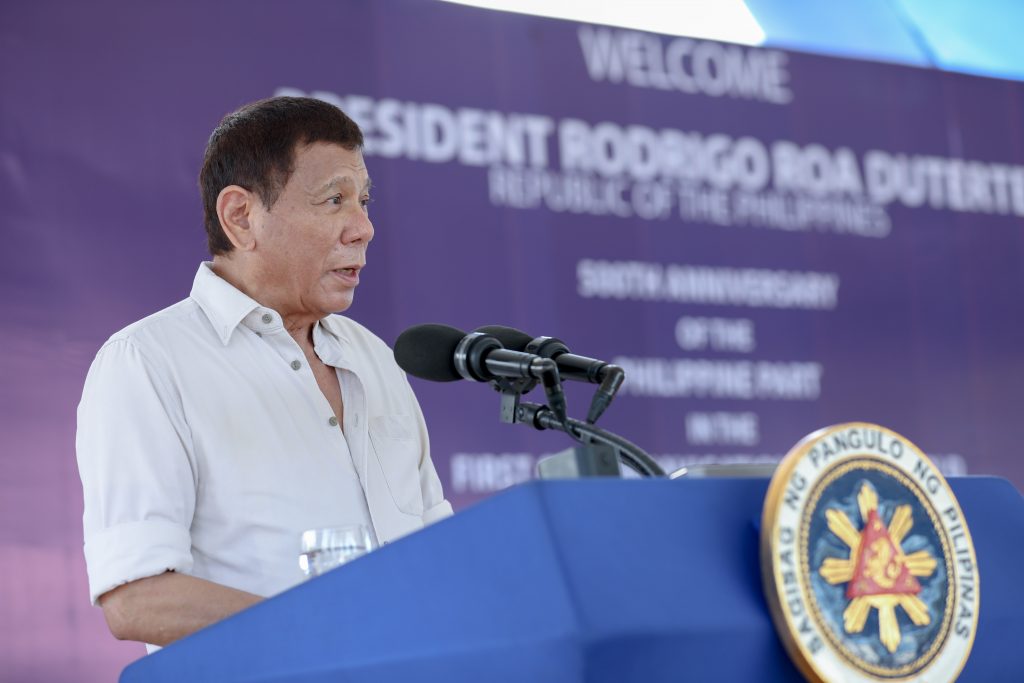
Philippine President Rodrigo Duterte mangled the country’s history in a speech during the unveiling of a marker in Guiuan town, Eastern Samar province, on Thursday, March 18.
The event was part of the observance of the 500th anniversary of the arrival of Portuguese explorer Ferdinand Magellan in the archipelago, which was later known as the Philippines.
The president started off with a two-page speech that took note how colonization came hand in hand with the introduction of Christianity in the islands, starting from the arrival of Magellan who was then working for Spain.
“What was really planted here was the sword and the cross of Christianity,” said Duterte.
Unlike previous rants against the country’s American colonizers, the president was subdued in discussing the Spanish occupation.
“Filipino people can find relief in the knowledge that we have gone far in our efforts to correct the mistakes of the past,” said Duterte.
“I call on our kababayan to appreciate our rich history and learn from the experience of those that came before us so that we may never again … compromise our sovereignty,” he added.
After reading the two-page prepared speech, the president told the crowd that he would refrain from his usual extemporaneous remarks.
But he did it anyway.
About five minutes and 40 seconds into his address, he said: “Until now, we are celebrating because it was the first time we saw foreigners in our native land. That alone speaks a volume of stories.”
It is, however, a settled historical fact that the Spaniards did not discover the Philippines. They were not the first foreigners to sail into the archipelago and to foot on the islands. Even the most conservative history books acknowledge it.
The National Historical Commission and the National Commission for Culture and the Arts have extensive literature on the topic, as do many of the country’s top universities.
When Magellan arrived in 1521, Muslim sultanates were already established in Mindanao, in the southern Philippines that Duterte calls home.
Islam, the religion in many areas of Mindanao, reached the country 200 years before Magellan. It was brought by preachers who accompanied traders from the Persian Gulf and allied states in the Malay archipelago.
The first Sultan of Sulu, an archipelago just north of the Celebes Sea, was Abu Bakr who established it in 1405. He had an Arab father and a mother from Johore, where he was born.
Sharif Kabungsuan, another prince of Johore, helped Islamize the plains of Maguindanao on the Mindanao mainland just shortly before Magellan came.
The Chinese started trading in the Philippines as far back as the 7th century, according to records compiled by Zhongsan University.
By the 12th and 13th centuries, the Chinese were the dominant traders in the region. Filipinos were also known to reach China with wares and other goods to trade.
Source: Licas Philippines
0 Comments